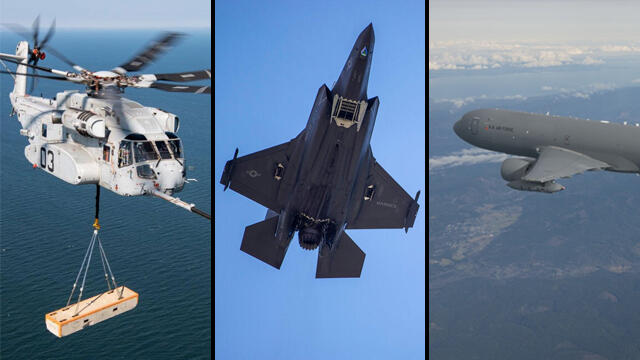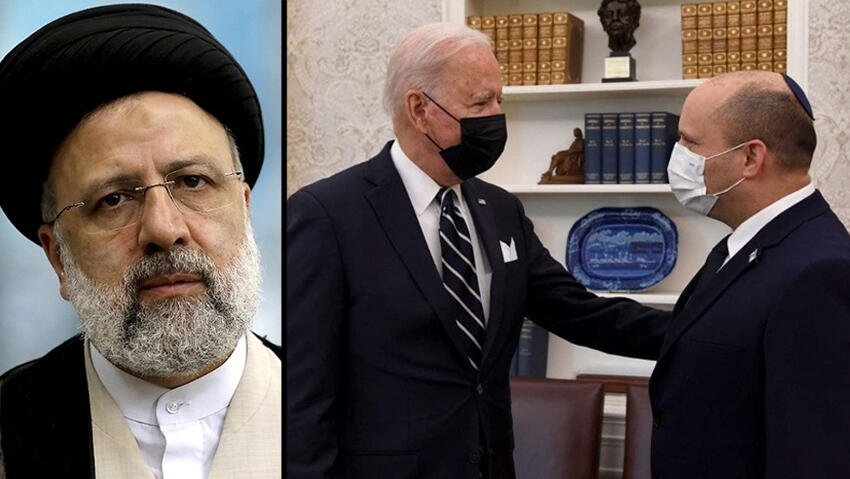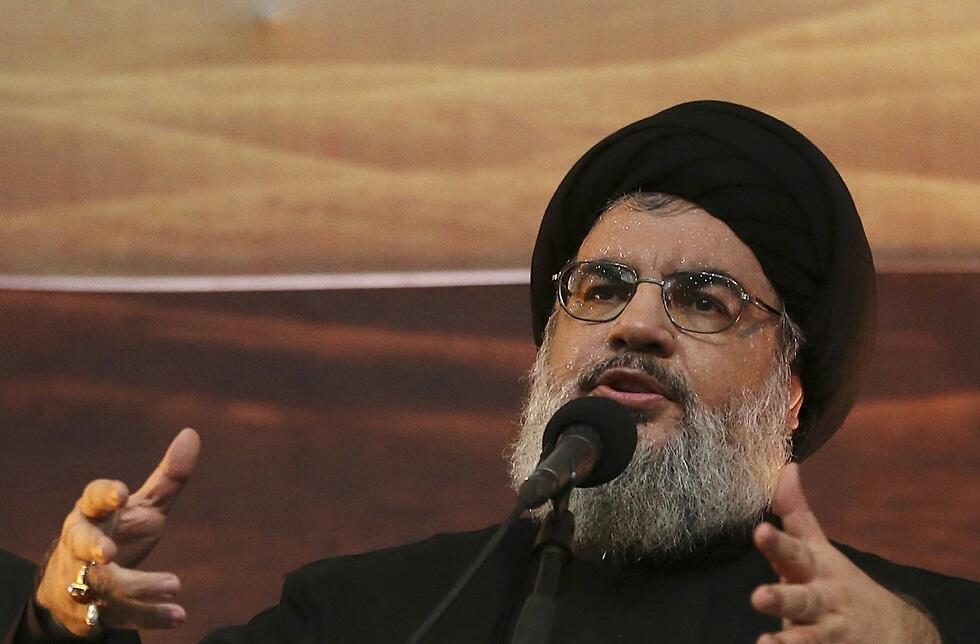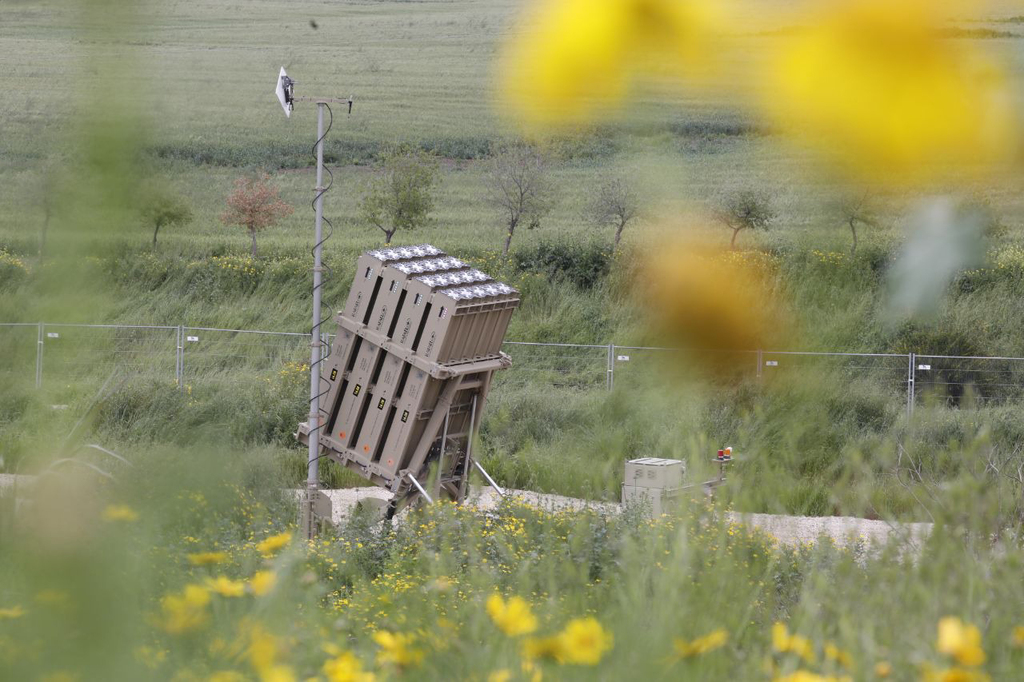Israel is very pessimistic regarding the nuclear talks between Iran and world powers in Vienna which were renewed this week, and an official document shows the country is preparing to spend some five billion shekels on weaponry.
Jerusalem, as well as the IDF, are seriously preparing for the possibility that Israel will be left alone in the face of the Iranian nuclear threat. The possible strike in Iran seems closer than ever, although there is still time, and military and diplomatic limitations to overcome.
4 View gallery


Israel is arming up with the CH-53K King Stallion helicopter, Lockheed Martin F-35 fighter jet, and Boeing KC-46 Pegasus military aircraft
(Photo: AFP, Boeing)
Nevertheless, the Israel Defense Force prepares for the possible strike, mostly by training the Israeli Air Force (IAF) and intelligence gathering. However, it turns out that the ministerial committee in charge of military equipment, convened Sunday, and confirmed, along with Defense Minister Benny Gantz, the acquisition of 12 new CH-53K King Stallion helicopters, and additional stock of missiles for the Iron Dome.
The Americans also approved Israel's request for purchasing classified bombs and precision weapons for the IAF a few months ago at an estimated cost of one billion dollars. And according to an official document, classified as "top secret", the total cost of these purchases is estimated at around five billion shekels.
Other military means will be provided by Israel's security industries in two additional deals, and these deals stress the seriousness of the Iranian issue for Israel.
Over the last few years, the IDF diverted its resources to upgrading its land and intelligence capabilities, under the intelligence assessment - which was based on the agreement between world powers and Iran - that this upgrade could be done while calculating and managing the Iranian risk and addressing the army's more pressing needs.
However, the United States withdrew from the nuclear agreement in 2018, and that begs the question, why Israel didn't prepare for the attack back then in order to show the seriousness of the issue and to make it clear that a military option is on the table?
The General Staff of the Israel Defense Forces said they learned their lesson, and even if the U.S gets a good agreement, which most likely won't happen, the preparation for a military strike won't be slowed down, and will continue in the planned course.
In such an event, there are two key questions: whether the Americans will join the attack or not, or will they back Israel, by providing security assistance during the strike and after. Regarding the first option, in light of the Biden administration's policy in the region, the likelihood of cooperation is lower than before. But, for support, at this point, the estimations are positive, especially if it would be clear beyond any doubt that the Iranians led to a point in which Israel had no other choice.
Another main question is whether Hezbollah will join the campaign against Israel, and if so, in what way. In the past, the answer was unequivocal, yes, and with everything they got, because that's the reason the Iranians invested some one billion dollars a year in an organization that holds the capabilities of a military.
However, Secretary-General Hassan Nasrallah no longer sees himself as an Iranian proxy but an almost equal regional leader. He is more occupied by Lebanon's crisis along with fights over control.
These reasons make Israel believe that he won't rush into such war, in which even if he causes significant damage to the Jewish state, he would have to sacrifice both Lebanon and Hezbollah, because Israel won't respond carefully anymore, it will use its full force against him.
The possible war raises a dilemma, among both political and security officials, about how to broker the issue to the public, particularly about the possible damage that would be caused by a total of some 2,500 rockets fired towards Israel per day. This issue can create stress and anxiety among civilians, and also empower the enemy.
IDF officials estimate that Hezbollah will most likely join the campaign after the strike in Iran but they can't determine the intensity of their retaliation. As a result, Israel buys more Iron Dome missiles, which raises further criticism on why this wasn't done before and as a result, the "National Air Defense" plan - deployment of Iron Dome batteries throughout the country - would be already finished.




